Work dresses are the clothing your wear in professional and office settings. The appropriate selection of workwear is guided by the type of office environment you work in, and the purpose for which your presence is needed.
With the world embracing remote work a lot more in recent times, work attire may no longer be of immediate concern to many. But for those who still make the daily or weekly trip, selecting an appropriate work dress remains one of the most consequential parts of professional life, one that says a lot about who you are and your capabilities.
It is one of those personality choices with non-verbal cues that influence how bosses, colleagues, and clients treat us. Not many know of this phenomenon, and even fewer people understand it enough to leverage it in their favor. However, your work dress says a lot about you and can help you get the outward and inward image you want.
Your Choice Of Work Dress Says A Lot About You Than You May Realize
One of the things many people find surprising is how much impact their dressing has on their lives. We often think of clothing as items we put on our skin to cover our nakedness and fit into society. But they serve a higher purpose than that.
According to a book by Dr. Jennifer Baumgartner, a clinical psychologist, what we wear informs our psychology and those around us. Not only that, but they also can help us overcome key psychological issues. The book, You Are What You Wear: What Your Clothes Reveal About You, informs readers that clothing can reveal –
- Your earning power
- How smart you are
- The amount of influence you wield
- How powerful you are
In the book, Dr. Jennifer Baumgartner reveals that with no obvious caste system to establish our place in society, we have deferred to clothing as an economic and social indicator. Thus, what you wear, especially at work, can reveal what you think of yourself and how you want others to see you.
If you are also looking to change your perspective or emotional state, clothing is also a powerful tool to achieve this. With it, you can project an image of confidence and happiness. The longer you stay in a desired cloth, the more likely your emotional state alters to fit your clothing, even if it is temporary. That is why we often friends recommend playing dress-up to help themselves get over a bad breakup.
Now that you understand the value that your clothing choices carry, here are some of the common work dress styles and what they say about the wearer.
Making Colour Choices for a Work Wear
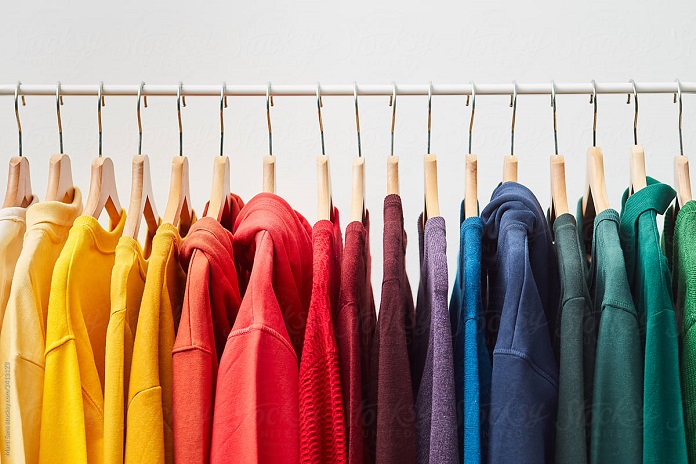
One of the extensive variations in clothing choices is colour. There is a myriad of colours to choose from, even when you are shopping for a particular design. Since the 60s, advertisers have told people how to respond to different colours, which has influenced the ad designs we see today. Recent studies also prove we have an emotional response to colour.
For instance, we know that black makes people feel powerful and authoritative. Blue connotes peace and creativity, while yellow often represents cheer. A work dress with a piece prominent in any of these colours will project these ideas to others and maybe even yourself.
Red is one common colour that can be tricky. A lot of people, along with orange, associate these bright colours with positivity and energy. But according to that study, it can also be a way to display attractiveness or, more specifically, peacocking. If you work in an environment dominated by people who wear duller colours, red will most certainly make you stand out. It can either be interpreted positively or as signaling for mates.
Dull colours like white, tan, and greys display a willingness to blend into the crowd, interpretable as a self-esteem issue. But like every other colour, the interpretation ultimately comes down to your work environment. For instance, wearing black in an office where most people wear white will have a similar standout effect as wearing red.
Provocative Clothing

The impact of sexually suggestive clothing, especially in the workplace, is well documented. Studies like this, or this article by the Guardian, explain how provocative clothing has a high likelihood of triggering sexual harassment or assault. However, beyond the criminal factor, it also projects an air of unseriousness.
Even as the world rethinks several of its rules, the workplace is still considered a conservative environment. Wearing revealing clothing can keep bosses and coworkers from taking you seriously, believing you have nothing else to offer other than your body.
The possibility of attracting the attention of coworkers can also impact the effectiveness of you and your team. But that is not to say you must hide yourself; you can wear professional attires that also accentuate your figure, keeping things modest without selling yourself short.
Casual Vs Dressy Clothing for Work
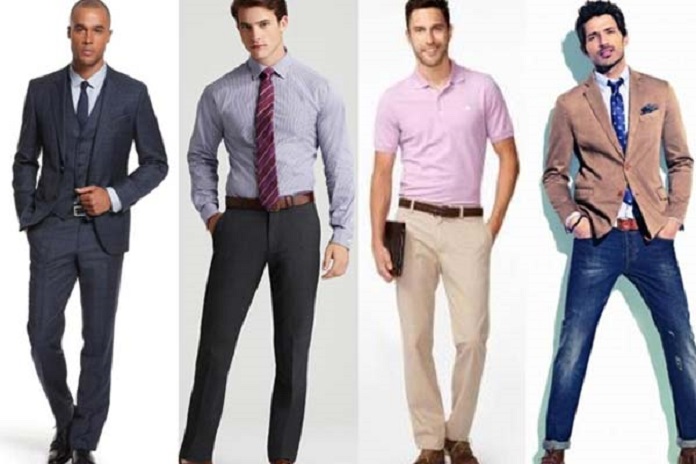
Most work dress choices often come down to these two large umbrellas. Dressy clothing is often tailored business attire, capable of making you feel powerful and attract respect. If this is your goal, dressy attire is, without a doubt, a go-to choice. However, they can also make you look unapproachable and unfriendly.
Casual clothing, on the other hand, has a reverse effect. They transmit flair and an easy-going personality. As a work dress, they often portray a relaxed approach to things that can also be interpreted as flakiness. Having a wardrobe full of casual clothing might suggest you can’t be counted on for high-level work, long hours, or to make sacrifices for the team.
Both casual and dressy clothing have their benefits and disadvantages. The trick is to have a wardrobe balanced with both, deploying both based on the mood at work and the kind of person you want to be that day.
Tightly Fitted or Overly Loose Clothing as a Work Dress

Fashion experts emphasize wearing fitted clothing because they look better and accentuate your body. But they also do so because they project confidence and complete trust in your own skin. Wearing overly loose clothing suggests you might not have an accurate picture of yourself. It might be because you are still mentally holding on to your past body shape or trying to hide your current one. Either way, it can be interpreted as a sign of confidence issues capable of keeping you from reaching your potential. Additionally, it can connote a lack of intelligence.
When most people use the colloquialism, ‘dress smartly,’ they often imply to wear something that fits perfectly because they associate fitted clothing with intelligence and professionalism.
Thankfully, if you have a wardrobe filled with wrongly fitted clothing, all you have to do is get them slightly altered and tailored. If you need to buy a new set of clothes, bring an honest friend shopping who can determine what perfectly fits you.
Quality of Attire in Choosing Dresses for Work

In general, you should spend your money on quality clothes because they are better and last longer. But this is truer when it comes to work dresses. Maybe you can get away with low-quality to mid-range clothing if you work exclusively among coworkers. However, if your work requires interacting with higher-ups and customers, there is no valid alternative.
People are more likely to trust and take advice from someone whose clothing choices display success. Quality clothes have that, and wearing them helps you project confidence and accomplishment, leading to real achievements and success.
Additionally, they are better investments and more practical. They are durable and more comfortable, improving your productivity. The added fact that buying quality clothing can be a real boost to your happiness makes it a no-brainer.
Should Work Dresses Be Covered in Designer Logos?
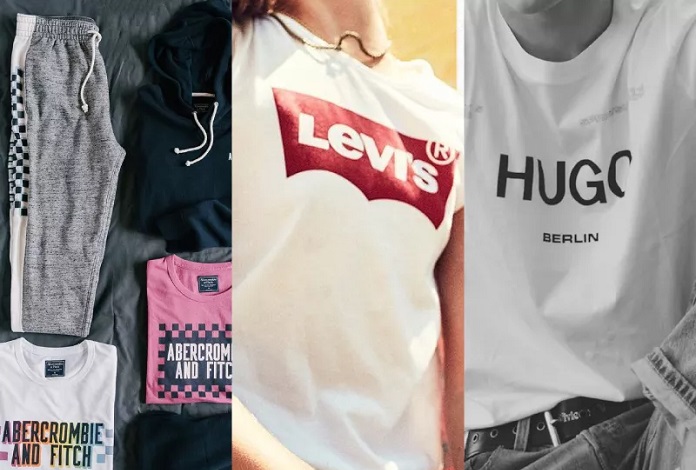
In a world where luxury and designer brands are parts of the modern definition of success, being lathered in them might seem like a great way to project positive vibes, but there are significant caveats. Those who exclusively wear logos can be seen to be hiding their real identity and personality.
People might also see you as someone who needs to broadcast their wealth because they cannot command respect any other way. If you have a wardrobe filled with large designer logos, you might want to reevaluate what they mean to you and diversify.
You can start by infusing bland clothing into your routine while opting for logos that accentuate the outfit. It can make you go from having zero personality to being an appreciated fashionista.
Should You Wear Eccentric Clothing to Work?
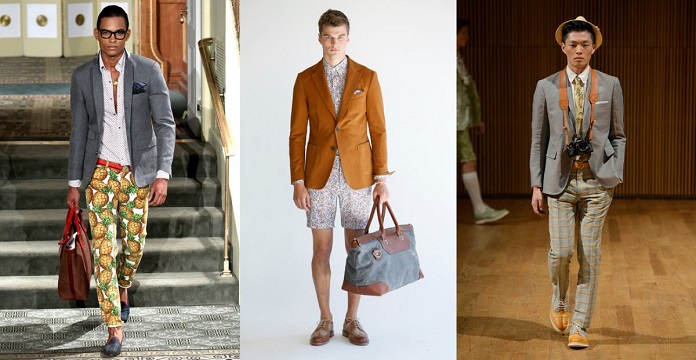
Not so different from designer logos is eccentric clothing. Many people will be familiar with that coworker who opts for the odd bowtie or flapper-style dresses with shimmer hose. Those who wear clothes that significantly deviate from the norm often do so to stand out from the crowd.
However, while that is not necessarily a bad thing, doing it this way often brings negative opinions. The eccentricity leaves bosses and coworkers wondering if you can be trusted to meet high-profile clients, carry out major projects, or lead a team.
A better way would be to opt for a more uniform look, infused with your personality and originality. Work dresses like these suggest you can handle collective goals using your brilliance.
Finding Age-Appropriate Dresses for Work

Growing old can be scary, especially if you work in an industry filled with young people. The story is not that different if you are young working among older people. If you belong to the former, wearing uncomfortable youthful clothing can make it look like you live in the past. If you are young, older styles can make you look devoid of creativity and filled with old ideas.
Instead, stick to wearing age-appropriate clothing that fits your professional environment. Rather than focusing on matching your coworkers’ style, pick a work dress that corresponds with how you want people to see you.
This is particularly important if you are young in an office surrounded by older adults. If you want to quickly move up the ladder, picking outfits that display maturity and youthfulness can do wonders for your career.
Overworn Clothing for Work
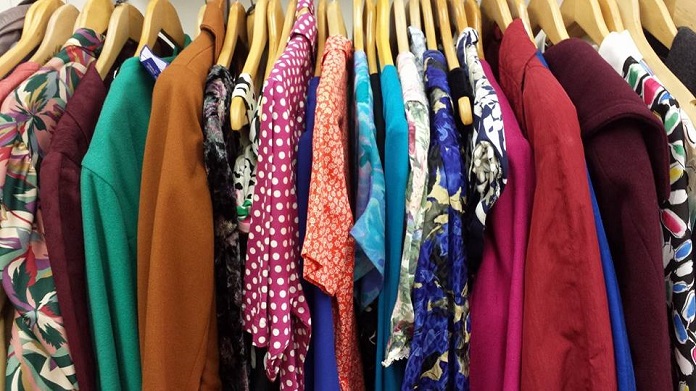
We are sentimental beings. Thus, there will be clothing pieces that we feel attached to. It can be the first suit you ever bought or the dress you wore to your life-changing interview. However, the truth is, while those sentiments remain, the validity of the cloth expires.
Work dresses that are out of style or you have worn for years can represent a reluctance to let go of the past. In a professional environment, people might see it as an inability to make hard decisions or adapt to present and future trends.
If you still have clothes like this in your workplace rotation, it is time to retire them for good. Let your wardrobe reflect the progress you have made in your career and your ability to live comfortably in a new future.
Duplicating Your Work Clothing
Maybe you are not overwearing the same cloth. Maybe you buy the same style or colour multiple times. You found the design you are most comfortable in, and you have stuck with it. It might be a good idea from your economic and stylistic point of view. But in the workplace, this approach to picking a work dress might make you look boring.
Instead, try and spice things up with clothing that deviates from your norm. Not excessively, but just enough to jog your brain out of the rut and spark your creativity. It can also improve how your coworkers see you and transform you into a more productive worker.
What People Think When You Wear The Same Work Dress Everyday

Have you ever wondered by rich people often claim that they never repeat clothing? Or why incidents of celebrities making the same cloth twice are newsworthy? That is because we often associate multiple clothing with wealth and high status.
Thus, when a person wears the same clothes every day, we assume they are poor or have terrible hygiene. More generously, we can also think they do not care about how they look to others, which can be disadvantageous, depending on their environment.
It is significantly more relevant if it applies to a work dress. Unless your industry requires a predetermined outfit or style, repeating the same clothes daily can suggest you are anxious about change and have limited creativity.
But it is not all bad. Repeating the same outfits daily can also be empowering. It can suggest that you are not concerned about how you look to others, which projects individuality and high self-esteem. It can also mean you focus significantly on productivity, limiting the amount of brainpower you spend on choosing your clothes. You can see several successful personalities like Mark Zuckerberg, Barack Obama, and the late Steve Jobs use this idea.
Now you know what each clothing item in your wardrobe says about you. Hopefully, your next visit to the office will see you become a bastion of power and productivity.
